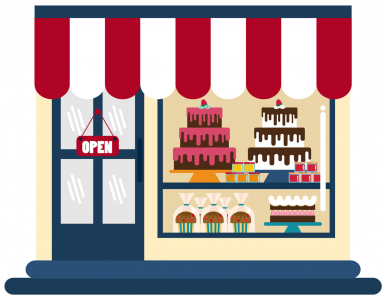It is possible you’ve had a bit of tough luck and made some bad financial choices – you don’t have to feel bad, everyone makes them at least once in a lifetime. But if you’ve learned from the error of your past mistakes, chances are you’re better off today than you were yesterday.
However, it may take a little while for this to reflect on your credit score, making it next to impossible to secure any type of loan or mortgage.
If your bank has rejected your mortgage application, it may not immediately occur to you how easy it is to secure a loan with a bad credit score. This is because qualifying for a mortgage with bad credit is not as difficult as it seems. The downside is that it will cost you an arm and a leg to get the deal over the line.
Getting a loan with poor credit means you have to make big sacrifices regarding the value of the property you have in mind, and the interest rate you’re willing and able to pay.
Here are five things you need to know before you get a mortgage with bad credit:
-
Improve Your Credit
It goes without saying, but we’ll say it; the first thing you need to do is to improve your credit score. Although it takes time, this is an option that can be the difference between getting your mortgage application denied or approved.
The first thing you need to do is to request a copy of your credit report from TransUnion and Equifax and start reviewing for outdated information as well as errors. A successful dispute of the information in your credit report can improve your score by several points almost immediately.
-
Larger Down Payment
If you have bad credit and you’d like to inspire confidence in your bank or private lender, one of the best ways to do it is to put down some cold hard cash – and lots of it too. This trick up your sleeve can be the ace in the hole to purchase the home of your dreams.
The higher the equity in the property you want to purchase, the easier it is for a lender to approve your loan. So how much should you set aside for your down payment? Well, there isn’t any perfect number. But you can check out ratehub’s down payment calculator to have an idea of the figures you should aim for.
-
Use A Subprime Lender
If you don’t have the patience to wait until your credit improves, you can look for a lender who specializes in doing business with Canadians with bad credit. Getting a mortgage with bad credit has never been easier, especially where you have a credit score that’s less than 600.
There are bad credit mortgage brokers who can assist you through the entire application process, and who can vastly improve your odds of securing a mortgage with a bad credit score. You should know now that these brokers and lenders will expect you to make a down payment of 20% or higher, and you’re likely to pay interest within the range of 10 -15% monthly.
-
Joint Mortgage
For those who’d like to know how to get a mortgage with bad credit in Canada, there’s no simpler or easier way to this than to get a co-signer. This way, you can skip or avoid all the processes mentioned above. Keep in mind that you will put the co-signer at risk if you default, and that also includes you.
-
Go For Adjustable Rates
This is an option that’s suitable for Canadians who do not intend to live in their homes for a long time. Adjustable rates start lower than fixed rates and by the time the rate increases, you’d have already moved on to another city.
You should consider this route if this isn’t your first home and you understand the intricacies of a mortgage. It is in the best interest of a first-time homeowner to consult a mortgage broker for bad credit before signing up for adjustable rates.
Final Thoughts
The best way to get a mortgage with bad credit is to stay patient and wait until your credit improves. But if you’d like to buy a home today, you can consider the options mentioned above.
However, it is crucial to remember a mortgage is a serious responsibility that takes many years to pay off, even for those with an excellent credit score. If you’re having a hard time taking care of your debts, do you really think you should take on a mortgage?







